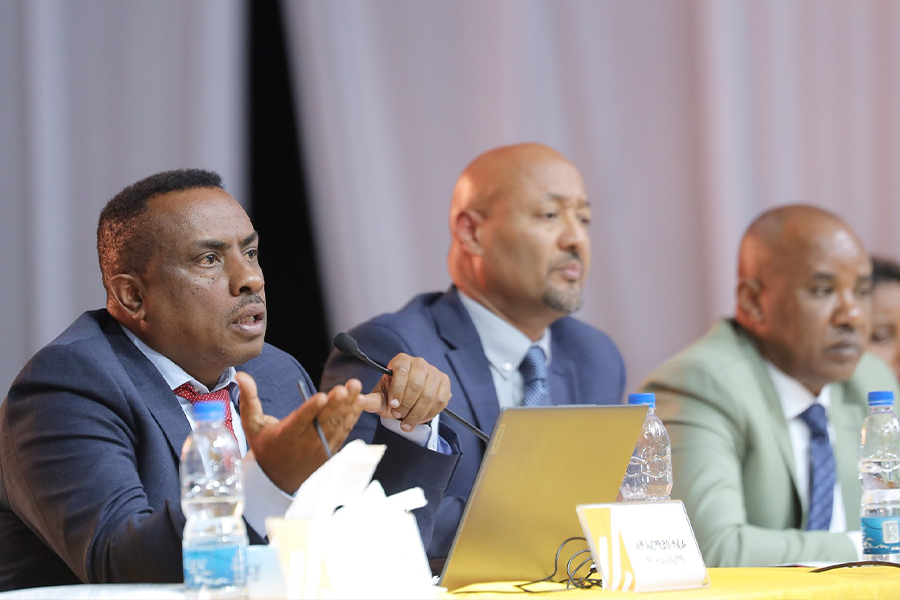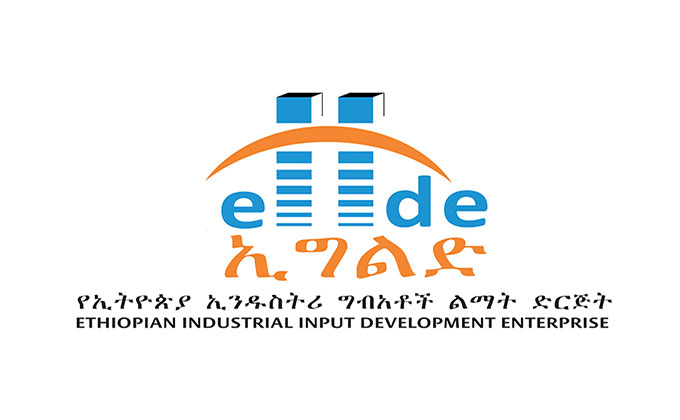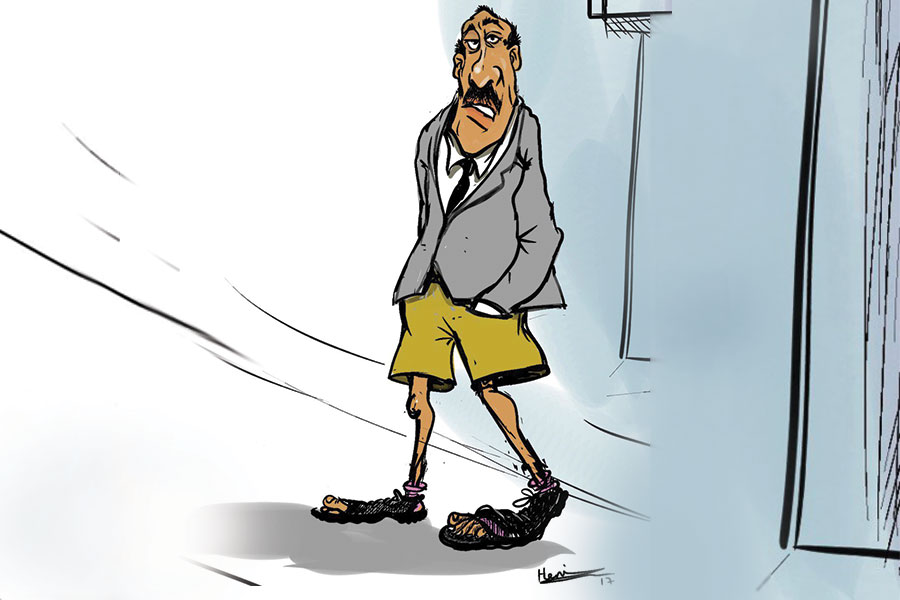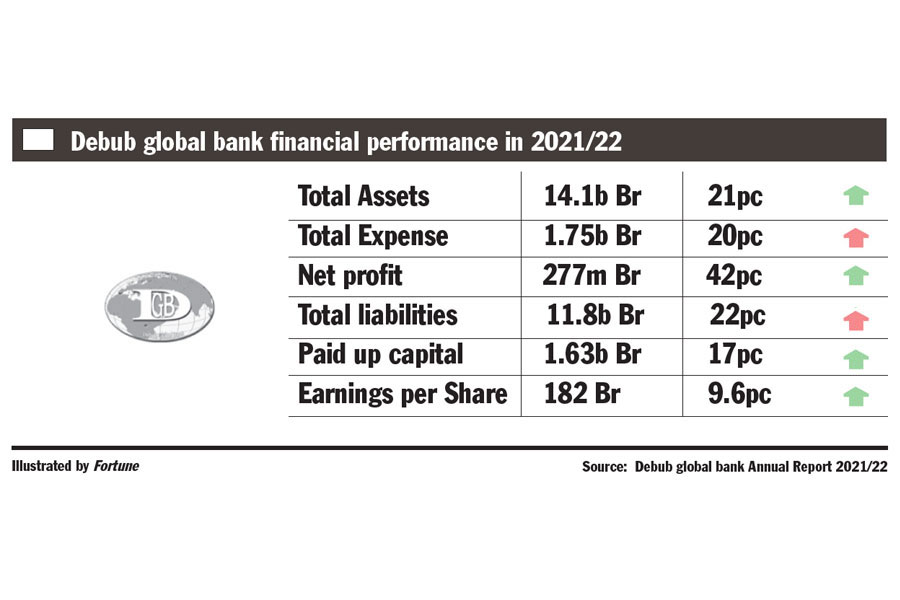
The eight-year-old Turkish company BMET Cable produces energy and telecommunication cables. Employing 788 people, it produces 40tn of cables a day. The company has never been without trouble, such as a shortage of foreign currency, but the allegations made against it recently by the Ministry of Revenues has come as a blow to the staff.
The Ministry accused BMET and 165 other companies of tax evasion last month after an investigation conducted by the National Intelligence & Security Service (NISS) and the police.
As a result, 16 people are currently under arrest for transacting over 51 million Br with no service or goods to offer. The Ministry also alleged that 136 of the companies transacted over 6.9 million Br.
BMET is suspected of using forged receipts to claim heavy losses. It notified the tax authorities of 1.5 billion Br in losses and allegedly now owes the Ministry 670 million Br in unpaid taxes since 2014.
“To confirm such losses, the company presented forged receipts,” said Sisay Gezu, tax fraud investigation director at the Ministry. “After an investigation of the claimed losses, the company was caught attempting to claim refunds.”
BMET mentioned depreciation of its machines and buildings as a reason for its losses. The company is also finding it difficult to obtain foreign currency to buy inputs and is now producing only two tonnes of cable a day. As a solution, it recycles scrap copper to reduce the shortage of inputs.
Taxpayers wait in line to pay their taxes at the West Addis Abeba Small Taxpayers Branch Office.
“We were suspected of buying forged invoices rather than items, because they haven't seen the profit they expected,” said an employee of BMET that requested anonymity. “However, we have documents to prove that there were transactions.”
BMET’s management claims that they purchased scrap copper from governmental organisations such as the Public Procurement & Disposal of Public Assets Authority, Ethio Telecom, Ethiopian Electric Utility and Metals & Engineering Corporation (MetEC). The purchases were made in cost per order (CPO) and in cash, the company claims.
“The cash register system eases things for forging receipts,” said Sisay. “What we recommend is changing the cash register system into an electronic invoice, which helps to ensure the originality of invoices on the spot using the database on our website.”
The ongoing case between BMET and the government is an example of the latter’s crackdown on businesses that allegedly produced fake receipts. In the past fiscal year, the Federal Police Commission Tax & Custom Crime Investigation Bureau investigated cases of crimes related to trade. Among these, 117 of them were sent to the Attorney General’s Office. From a total of 716 cases that the Bureau investigated, 291 involved contraband.
Judgment has been given on almost half of the cases that were investigated, according to the Bureau. In the last fiscal year, after an investigation into tax evasion, the government reclaimed 15 billion Br.
It is the construction industry that is considered most exposed to tax fraud. There is no means of identifying the amount of input, such as reinforcement bars in a given building, in the industry.
“The cash register system eases things for forging receipts,” said Sisay. “What we recommend is changing the cash register system into an electronic invoice, which helps to ensure the originality of invoices on the spot using the database on our website.”
Girma Tesfaye, a fellow of the Association of Chartered Certified Accountants and general manager of Girma & Fasil Audit Service Partnership, who has 40 years of experience in the sector, believes that the government should make public the names of businesses that have been caught using forged receipts and evading taxes.
“It will give buyers information not to buy items from those listed on the tax evasion register,” he says, adding that tax fraud cannot be eliminated but only minimised. “Seeing the degree of the problem, the government should establish a research centre to investigate the causes of tax evasion.”
Currently, the Ministry is working with the National Intelligence & Security Service to identify companies involved in tax evasion. The partnership has uncovered 13 billion Br worth of forged receipts and is still ongoing. The Ministry has also created a system of collecting information from the various branches and is working on human resource capacity building.
“Access to information and competency of human resources is a challenge for us to investigate tax fraud,” said Sisay. “We also don’t randomly reject receipts, we first check the company’s amount of purchase and output before making decisions.”
There are 44,477 businesses registered under the Ministry of Trade & Industry. Overall, the government plans to collect 248.3 billion Br in taxes to cover 65pc of the federal budget. Forty percent of this will come from customs tax. From the 98.2 billion Br income that is expected to be gathered from customs, Modjo and Kality offices will collect 73pc of the target. The current fiscal year target grew by 50.1 billion Br from the last fiscal year's revenue.
The Ministry of Revenues collected 57 billion Br in revenue in the first three months of the current fiscal year, a 1.3 billion Br increase over what had been planned. The amount of revenue has increased by 12.9 billion Br compared to the same period last year.
Yihun Zeleke, a lecturer at Bahir Dar University School of Law, believes that buyers too have a part to contribute when it comes to tax evasion, specifically the use of fake receipts.
“The buyer should check the validity of the receipt, however unfair it may be for consumers to be expected to investigate the legality of the sellers,” he said.
BMET staff members feel that they are the actual victims of this crackdown.
“We did not present forged documents," says an employee that did not want to be named. "But even if we did, the government should have followed up and addressed each allegation they had before allowing them to roll for five years."
PUBLISHED ON
Nov 16,2019 [ VOL
20 , NO
1020]

Radar | Jan 11,2020

Covid-19 | Jan 30,2021

Fortune News | May 31,2025

Radar | Jul 18,2020

Radar | Dec 05,2020

Fortune News | Apr 17,2020

Fortune News | Sep 08,2019

Editorial | Aug 09,2025

Radar | Jan 21,2023

Fortune News | Apr 15,2023

Dec 22 , 2024 . By TIZITA SHEWAFERAW
Charged with transforming colossal state-owned enterprises into modern and competitiv...

Aug 18 , 2024 . By AKSAH ITALO
Although predictable Yonas Zerihun's job in the ride-hailing service is not immune to...

Jul 28 , 2024 . By TIZITA SHEWAFERAW
Unhabitual, perhaps too many, Samuel Gebreyohannes, 38, used to occasionally enjoy a couple of beers at breakfast. However, he recently swit...

Jul 13 , 2024 . By AKSAH ITALO
Investors who rely on tractors, trucks, and field vehicles for commuting, transporting commodities, and f...

Oct 25 , 2025
The regulatory machinery is on overdrive. In only two years, no fewer than 35 new pro...

Oct 18 , 2025
The political establishment, notably the ruling party and its top brass, has become p...

Oct 11 , 2025
Ladislas Farago, a roving Associated Press (AP) correspondent, arrived in Ethiopia in...

Oct 4 , 2025
Eyob Tekalegn (PhD) had been in the Governor's chair for only weeks when, on Septembe...